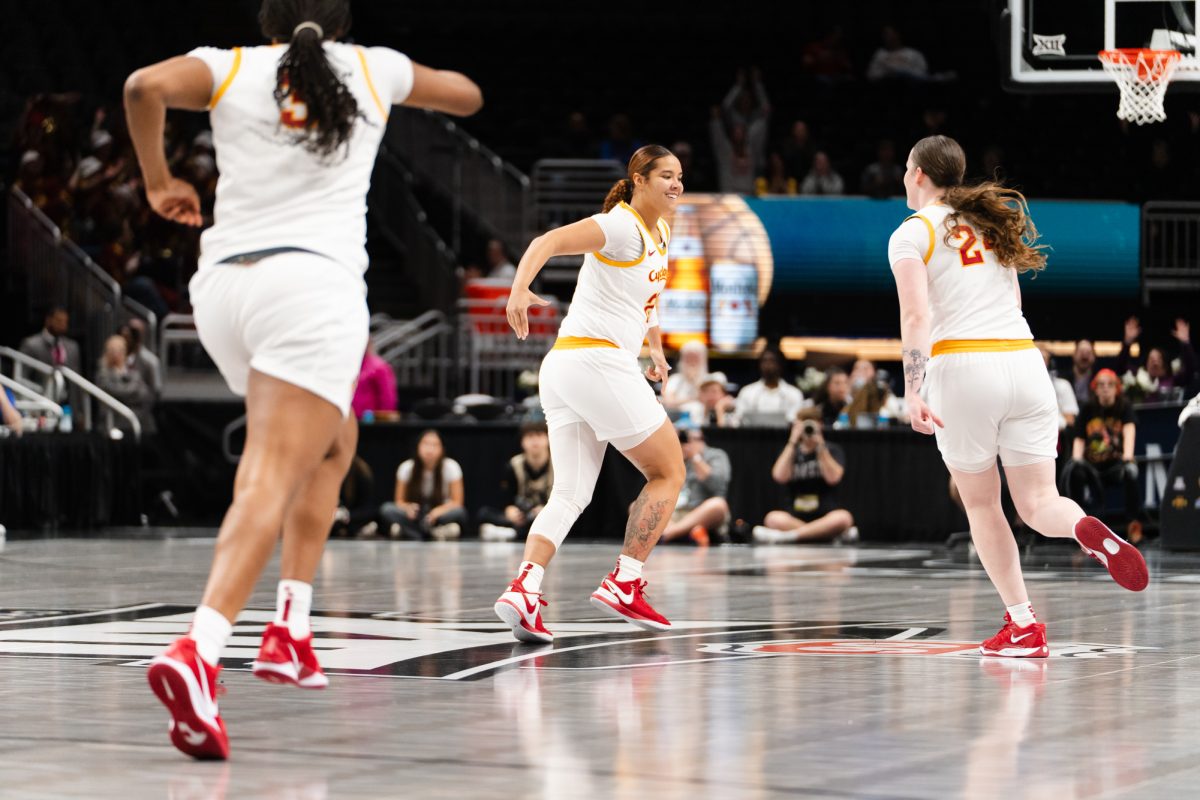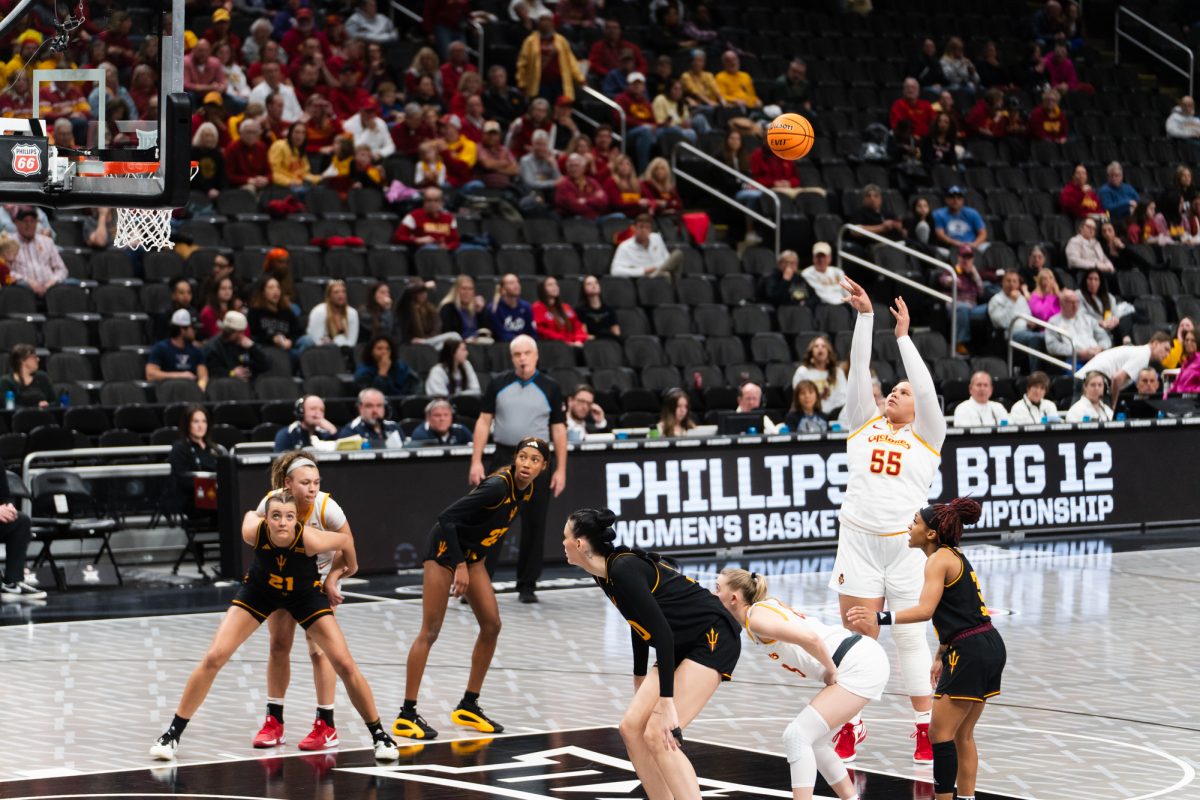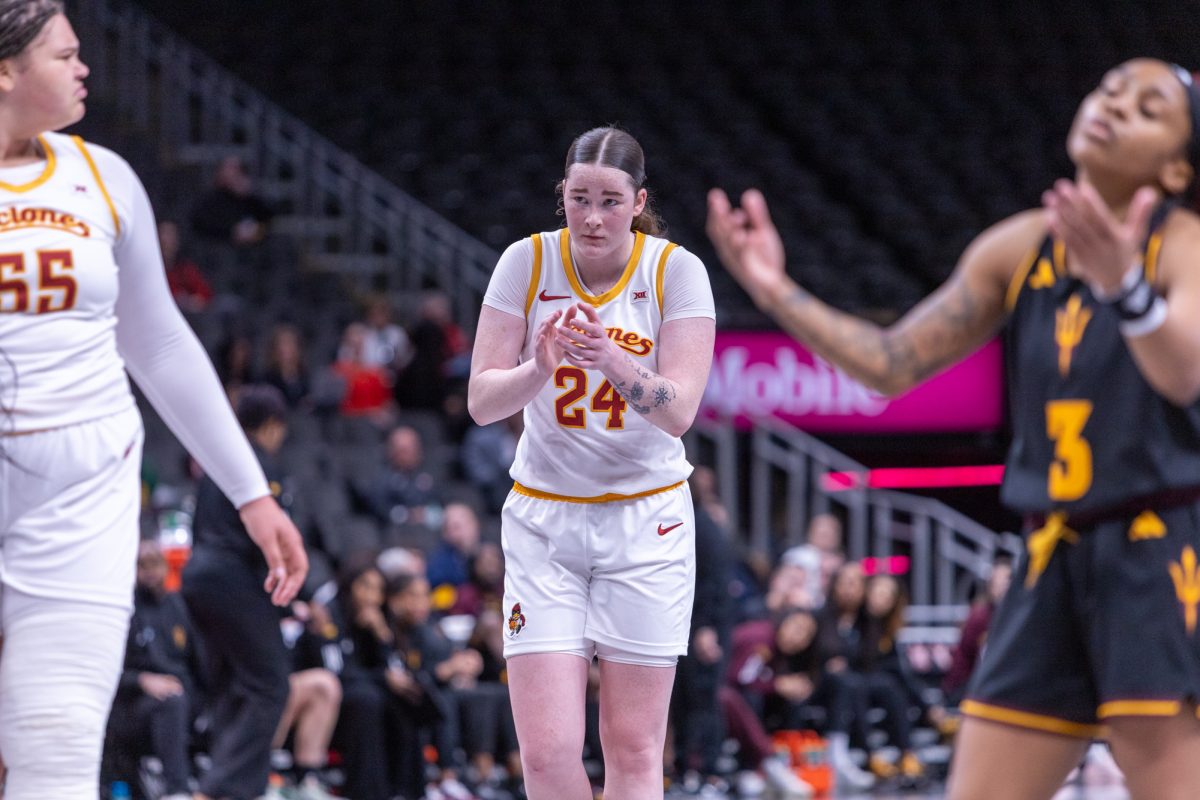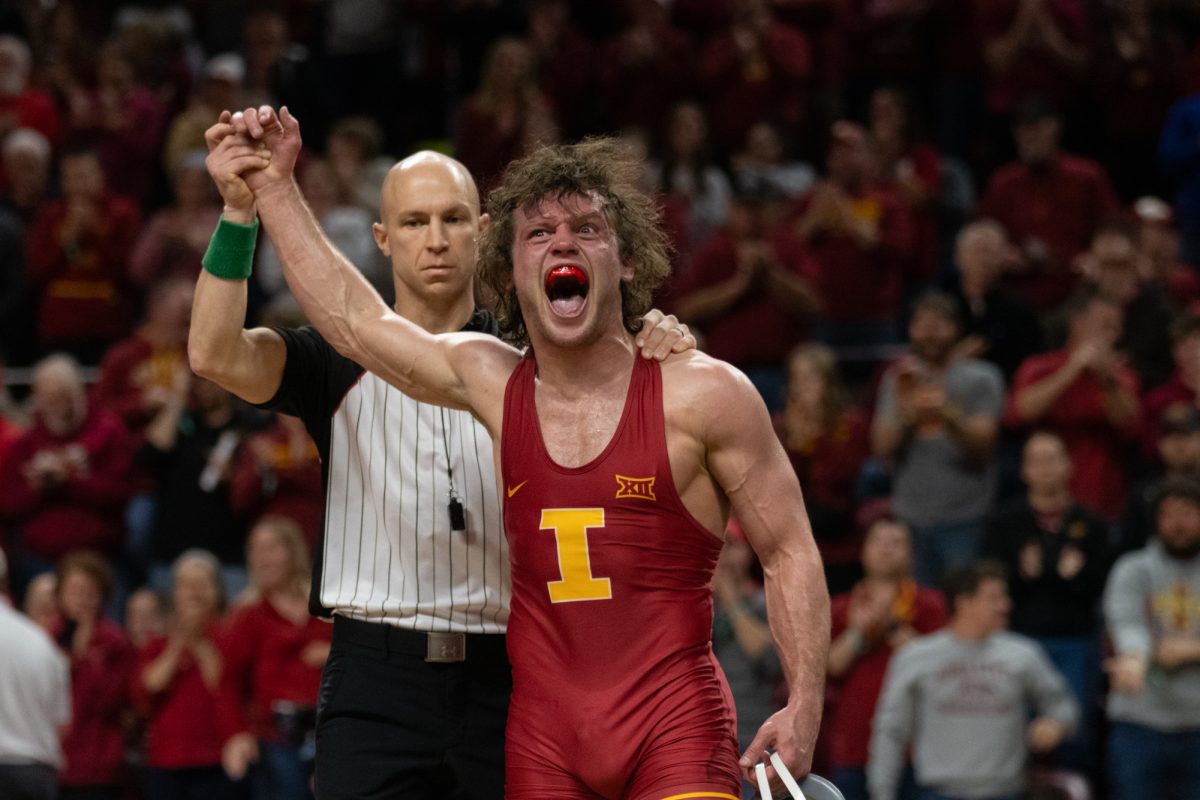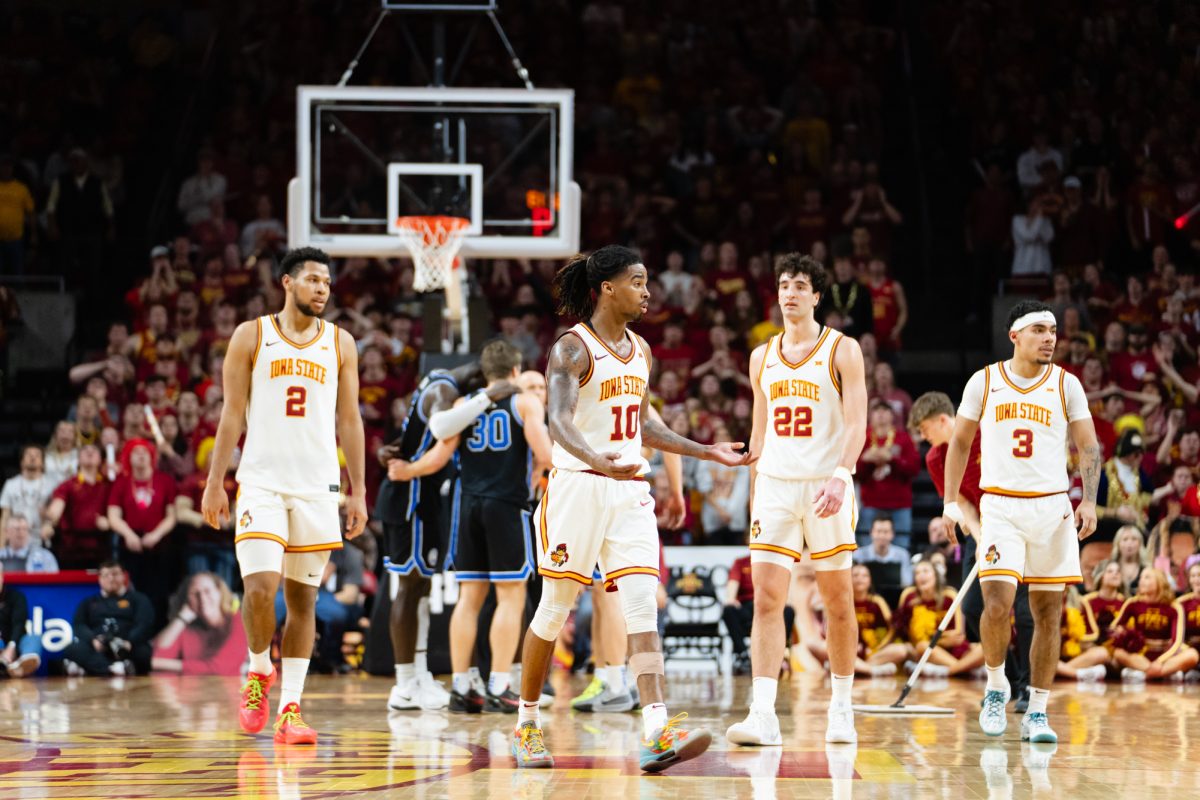ISU women’s track and field team displays mental toughness
February 7, 2013
Heading into competition this weekend, the ISU women’s track and field team is going to aim to be sharp.
Like every meet throughout the season, each race and event presents mental challenges.
“It’s very important [to be mentally tough],” said senior long-distance runner Ejiro Okoro. “In track, everyone is after the same thing. You can’t go out there and say ‘Oh, I’m going to run comfortably.’ At the end of the day it’s a competition, you have to be mentally strong.”
It’s one thing to know, but it is another thing to put it into practice. Being aware of limitations and when an athlete has not yet reached them is one thing that can make a difference.
“When you’re training, you work out to get mentally strong,” Okoro said. “There will be a day when I am tired and that’s when I know I’m going to train myself to stay motivated. If I can do it in training, then in competition it will come easy to me.”
Mental toughness is a term used everywhere in sports but is rarely defined. Intangibles can be hard to measure, but assistant coach Travis Hartke knows what it takes to build up one’s cerebral abilities.
“Confidence is about maturity and also the culture of the team,” Hartke said. “It’s a skill. And at age 18, not everyone has that skill. You have an evolution. For freshmen, some of them have it. It’s pretty rare, though. For most people it takes two or three years; it’s a building process.
“In the end, you have to remember the good things. It’s like being a closer in Major League Baseball. You have to have a short memory — remember the positives and forget the things that go wrong.”
When things are clicking, it makes it much easier to retain the positive memories. Redshirt junior thrower Hayli Bozarth is one who is having a season with many positive memories.
Bozarth remarked that her best performances come after a few weeks of being consistent. She also said that this week may not be great for her distance but her technique is top-level.
“Confidence is the most important thing,” Bozarth said. “Being consistent is good for the confidence. When you’re entering a meet confident then you just get after it and trust what you did all year long.”
The mental side of the sport may hold more truth in the field events when competition does not perform alongside the athletes and muscle memory is key.
“I would say 95 percent of it is mental,” Bozarth said. “Yes, you have to know your body and have good kinesthetic awareness for your throws, but that comes with the mental toughness. You have to be able to discipline yourself to make those adjustments.”
Making adjustments on the track takes some help from teammates, coaches and even fans. Volume levels of voices heard around the track help some athletes retain leads and cross the finish line before the competition.
“[Crowds and teammates] have a lot of impact because they can see what you can’t see,” Okoro said. “When they’re cheering, you know you have to keep going. When your coach says to dig in and go now, that is them telling you someone is coming up on you.”
The Iowa State Classic will be held at the Lied Recreation Athletic Center. It will begin at 12:30 p.m. Thursday and continue at 11 a.m. Friday and Saturday.


